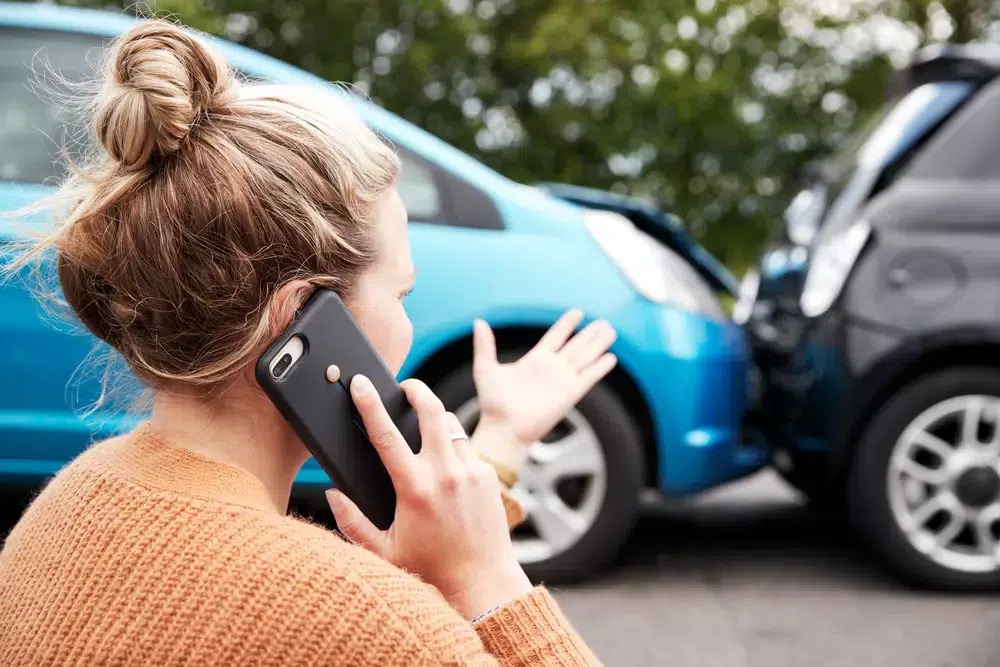Does the wrong class of use mean you’re uninsured?

Imagine driving home from work, when you find yourself involved in an accident. You exchange information and return home to report the incident to your insurer. But what happens next shocks you: your claims handler tells you that you weren’t insured.
How could that be? You always sort your car insurance, after all it’s a legal requirement! But now, the full costs could now fall on you, and worse – you risk a criminal conviction.
Why? Because you do not have the right insurance class of use.
It’s a worrying scenario but being under – or in fact uninsured in this way could leave you incredibly exposed and forced to pay a hefty sum. We’re here to fully detail they different ‘classes of use’ in insurance, to help you understand which one offers you the right level of protection.
Commuting vs SDP – the key differences
Many drivers changed their insurance class of use during the pandemic to only cover ‘Social, Domestic, Pleasure’, hoping to pay less for their insurance because remote working meant there was no need to commute. But now, many workers have returned to the office or hybrid working and haven’t updated their insurance to reflect their driving habits.
‘Classes of use’ in motor insurance terms refer to how you intend to use your vehicle. There are different classes based on whether you drive casually, commute to work, or use your vehicle for business use. The difference between driving on the school run or to go shopping, and driving to work may not seem much to you, but to insurers, it’s an important distinction.
When calculating your car insurance premium, insurers assess your risk of being involved in an accident and having to make a claim. And different uses mean different levels of risk. The more miles you clock up, especially at times of day such as rush hour, the higher your risk of being involved in an accident. Therefore, insurers have different classes to determine how you use your vehicle, and your overall risk profile.
What if you choose the wrong insurance class of use?
Let’s say you insure yourself on a Social, Domestic and Pleasure class, but actually drive your car to and from work. Well, then you’d be uninsured, which is illegal. Not only could you invalidate your policy and be exposed to the costs in the case of a claim, but it could also lead to a criminal conviction such as an IN10.
It’s not worth selecting the wrong class of use, just to keep your insurance costs down. Not only could it not actually save you any money, but the consequences are expensive, and simply not worth the risk. You could even be losing money by paying for an insurance premium that won’t cover you.
What are the different car insurance classes of use?
Social, Domestic and Pleasure (SDP)
SDP is for everyday social driving, such as visiting friends, shopping, and doing the school run.
Social, Domestic, Pleasure and Commuting (SDP+C)
This covers the same as SDP, but also includes journeys to and from work. Typically, only one place of work is covered. If you travel to numerous places for work, then the next level may be more suitable.
Personal business use (SDPC + business use)
Everything in the first two categories is included, plus business-related driving. There are several classes within this category, based on whether you travel to multiple places for work, if a spouse or colleague uses the vehicle too, or work as a sales rep for example.
Covers you if you drive for your job; as a taxi driver, chauffeur, delivery driver or driving instructor.
Understanding the classes of use
You must read the fine print carefully as insurers’ conditions and definitions can vary. For example, some explicitly say that driving to the train station and leaving your car parked there, while you travel onwards, counts as commuting. Whereas others are much less clear.
You may also encounter issues if you select SDP but in reality, make an occasional trip for business purposes, such as ferrying merchandise and materials for work or meeting a client for coffee. In these cases you would most likely need some kind of business class of use cover.
Similarly, if you allow your children, partner or other named drivers to use your vehicle, you may encounter issues if they drive for different reasons than you, i.e. driving to work. So it really is a case of thinking about every possible eventuality.
Here when you need us, however you need us
Sorting your insurance can feel like a chore, with so many options to comprehend and compare. But working with a broker, such as Howden Insurance, can help make the process easier. We know that each policy needs to be as individual as its owner, and that’s why we provide a personalised service, focused on getting to know you and finding out exactly what you need from your car insurance.
Our insurance experts will work with you to understand your specific insurance needs, before using our strong relationships with a wide pool of insurers to find and compare various cover options for you. But ultimately, just know, that whether you need to make a claim, purchase a new car policy, or renew an existing one, we’re here to help.







